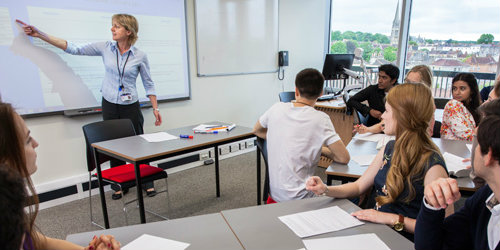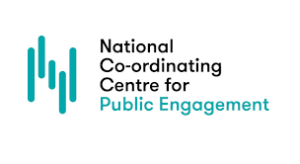Building more inclusive collaborations between universities and communities
Supporting universities to forge research partnerships with communities – especially those who face barriers to participation in research.
The challenge
Universities are increasingly seeking to build collaborative research partnerships with civil society and community partners to promote better research engagement, sustainability and social justice . But what are the key characteristics of positive collaborations, and how can universities ensure that they are inclusive, reaching communities from marginalised and minority backgrounds?
Research impact - Building more inclusive research collaborations
How new knowledge, scholarship, ideas and practices should, and could, be produced is a vital debate for both research policy makers and institutions. Universities are increasingly being asked to build collaborative research partnerships with civil society and community partners, and the research led by Keri Facer in partnership with colleagues, has identified key characteristics of positive collaborations between researchers and communities.
The research has had an impact on the UK Research Councils’ funding, informing large funding calls, and new, ongoing funding programmes in the charitable sector, affecting millions of pounds of research funding nationally. This funding is in turn having an impact, leading to greater engagement of low income, excluded and community groups in the early stages of the research process and the formation of new partnerships between academic institutions and community partners.
Insights from the project directly led to or informed national funding calls issued by the UK Research Councils, associated with over GBP 5,500,000 in awarded grants. Funding calls from the AHRC, the EPSRC and NERC have all cited the Creating Living Knowledge project’s findings, noting the benefits of public engagement to both researchers and the public. The research has also been embedded in the ESRC’s Guidance for Collaboration, which applicants are encouraged to follow.
As well as this new Research Council funding, the Creating Living Knowledge research has also had an impact on NGO funding programmes. The Community University Partnerships Initiative (CUPI) run by the National Co-ordinating Centre for Public Engagement directs research funding to communities to support partnerships with universities, and is funded by Power to Change (an independent charitable trust) and the AHRC. It has funded 28 partnerships, including 37 community partners.
Meanwhile, the Common Cause Research project has had an impact challenging universities’ lack of engagement with Black and Minority Ethnic Communities, as well as funding practice at the AHRC and UKRI. The AHRC’s 2019 Strategic Delivery Plan cited the project, and noted its “recommendations, for example on how to generate trust between universities and their partners and on principles to make sure research partnerships are fair and mutual”. One of the AHRC’s actions, to “challenge ourselves and our communities to establish more equitable partnerships with those we work with”, was directly “informed by the Common Cause report”.
Responding to the challenges raised in the Common Cause Research (CCR), in 2019 the AHRC appointed Dylan Law as Head of Cultural Value and Equality, Diversity, and Inclusion (EDI) to draft a strategy for the AHRC’s approach to EDI and represent EDI on the UKRI Implementation Group. This post, which Law says “began life in the Common Cause Research”, is the AHRC’s first dedicated EDI staff member. In 2020 the AHRC is establishing EDI Engagement Fellowships to allow academics working on EDI to take their research outside the academy; these will build directly on the recommendations of the Common Cause research, and guidance about engagement outside the academy will, Dylan Law says, be “based on guidelines from Common Cause Research”. The AHRC is also working to embed EDI within the Doctoral Training Partnerships and Collaborative Doctoral Awards (CDAs), and Law says this will “broaden the range of organisations students can undertake placements and CDAs with, to include smaller and more local ones, as championed in Common Cause Research”.
As well as these changes at the AHRC and UKRI, the findings from this research are also being implemented through collaborations with charities, funders and network building, with impacts on increasing the extent and depth of university partnerships with BME communities.
Working with the Runnymede Trust (the leading equality and rights organisation in the UK) the Common Cause Research enabled the formation of a network, initially around 300 people, which has now become established as an independent project – the Common Cause Networks - led by the Runnymede Trust to develop leadership and research capacity within BME community and cultural organisations. These networks have helped the Runnymede Trust to build its own capacity and, crucially, to enable people to form networks who may not otherwise have been able to do so. A conference for network members will take place in late 2020.
Underpinning research
The Connected Communities programme, which launched in 2010, was a programme of over 300 projects, led by the Arts and Humanities Research Council. Its vision was to connect researchers and communities to inform and contribute towards tackling economic and societal challenges. As well as her role as one of two national Leadership Fellows to support the shaping and development of the programme, Keri Facer led two research projects reflecting on collaborative and interdisciplinary knowledge production processes within the programme: Creative Living Knowledge and Common Cause.
The Creating Living Knowledge project identified the key characteristics of positive collaborations between researchers and communities. Conducted over 18 months, the study involved survey of over 300 participants and in-depth interviews with 100 participants. It examined how projects in the Connected Communities programme worked with community partners. The key findings were that ‘public value’ from research is not about creating short term, instrumental partnerships, instead it requires bringing together the different sets of expertise and experience that university and community partners offer over longer-term substantive relationships. The project found that to succeed, these partnerships need a better developed research infrastructure, longer-term and flexible funding programmes, better support for Early Career Researchers (ECRs), Postgraduate research students (PGRs) and professional service staff, and systems that understand the barriers to participation for some communities and individuals, especially those from marginalised and minority backgrounds.
The Common Cause Research project addressed the problem of lack of university partnerships with BME communities. Comprising 19 in-depth case studies of collaborations between universities and black and minority ethnic groups and communities, Common Cause Research found that organisations and individuals from BAME communities were underrepresented in university-community partnerships, and where they do exist these partnerships do not always draw upon the knowledge and expertise of all participants. The project showed a particular need for capacity building and funding of BAME organisations, improvements in staff diversity within HE and funding organisations, and a more ethical approach to the management of research projects.
Related research groups
Publications
- Facer, K (2020) Convening Publics? Co-produced research in the entrepreneurial university, Philosophy and Theory of Higher Education Studies, Vol 2 (2)
- Facer, K. , & Enright, B. (2016). Creating Living Knowledge: The Connected Communities Programme, community-university partnerships and the participatory turn in the production of knowledge. Arts and Humanities Research Council.
- Bryan D, Dunleavy K, Facer K, Forsdick C, Khan O, Malek M, Salt K & Warren K. (2018). Common Cause Research: Building Research Collaborations between Universities and Black and Minority Ethnic communities. University of Bristol / AHRC.
Date published
October 2020
 Study Education
Study Education
Join us in improving educational environments for future generations





